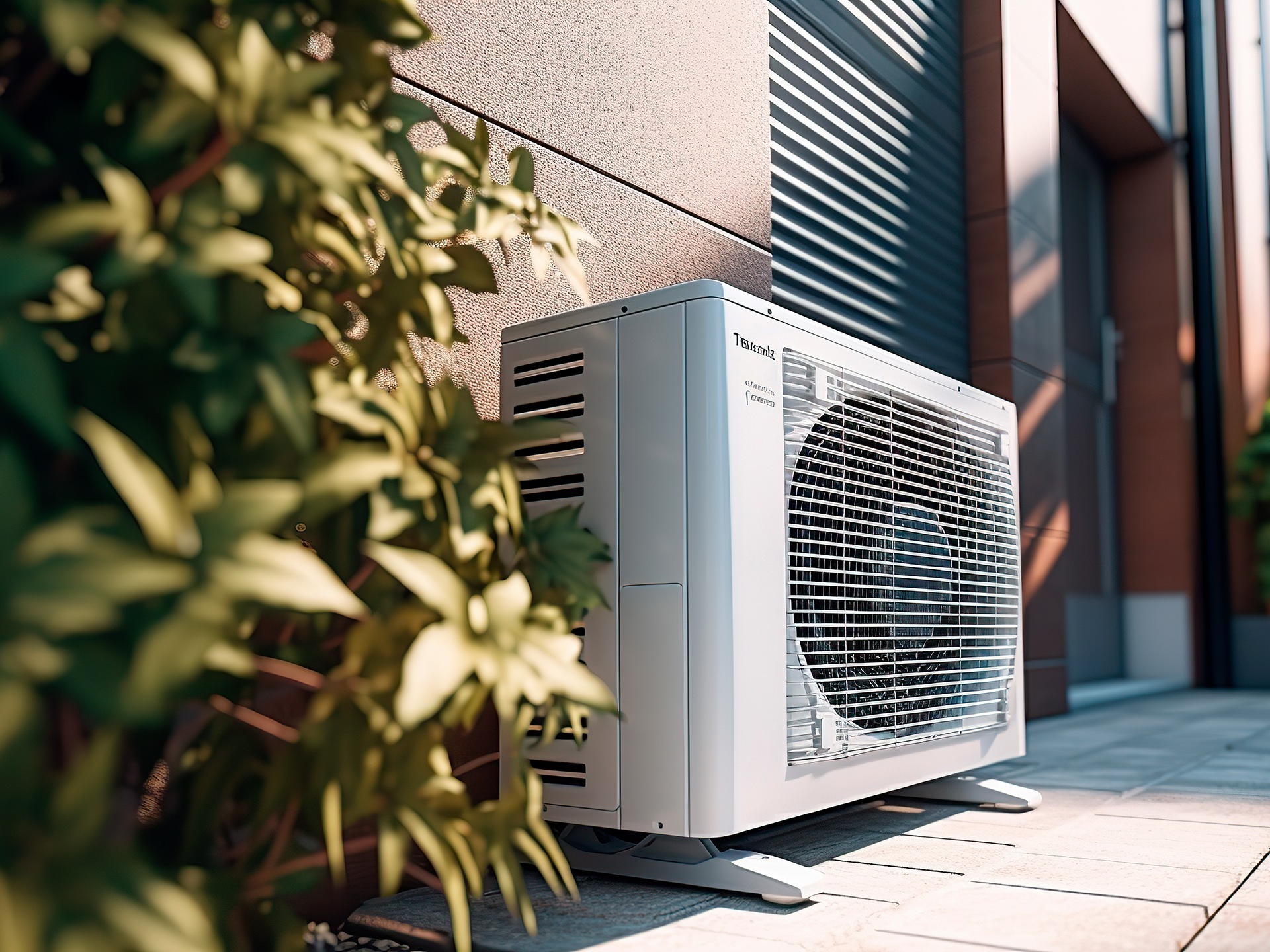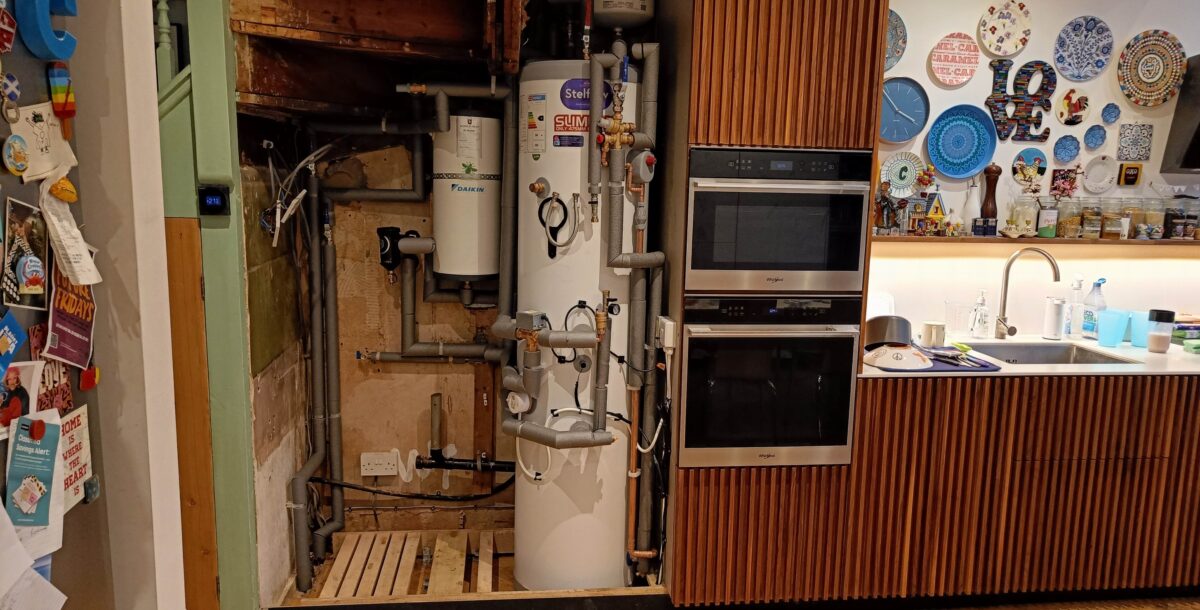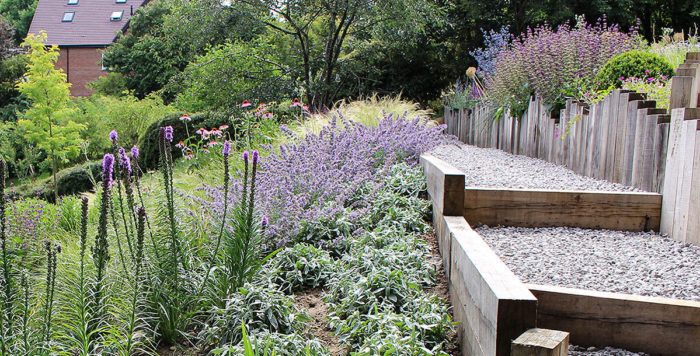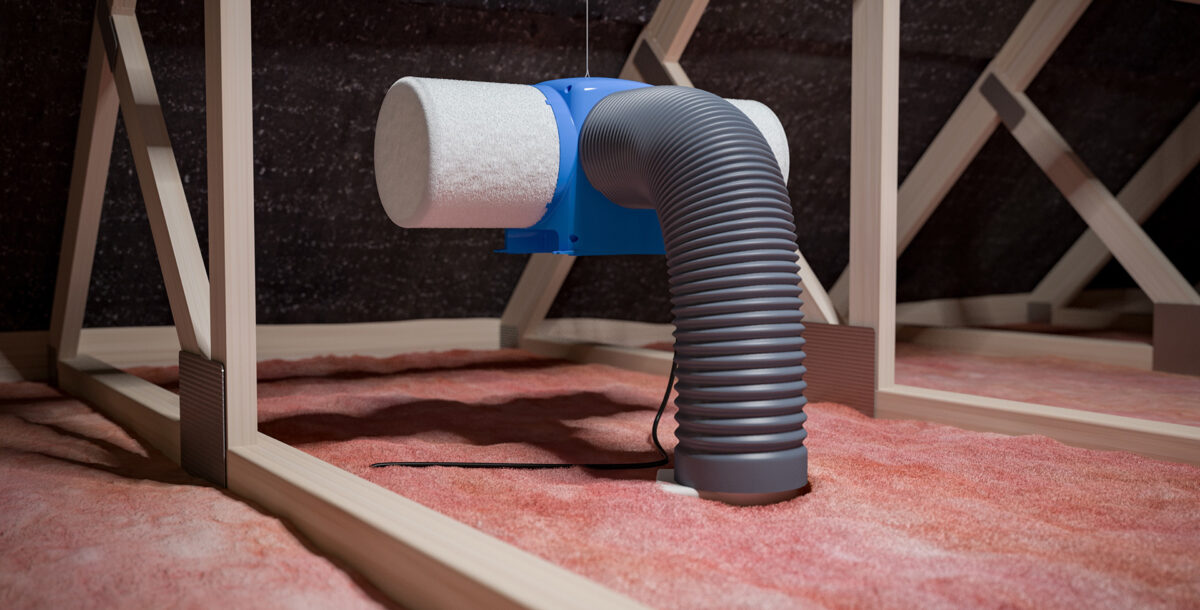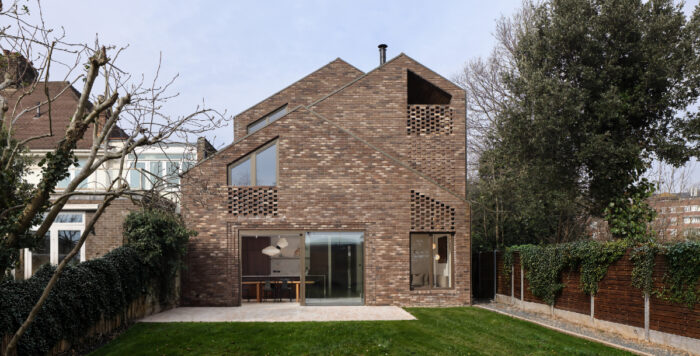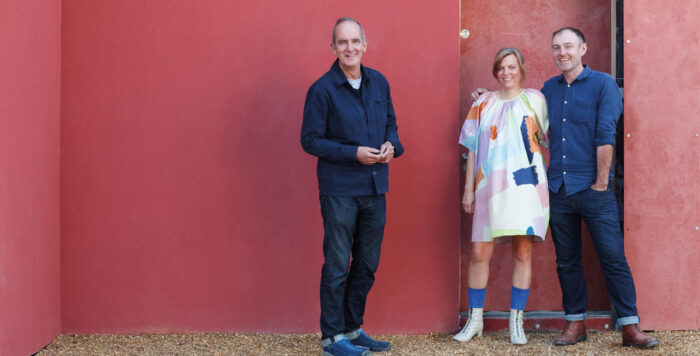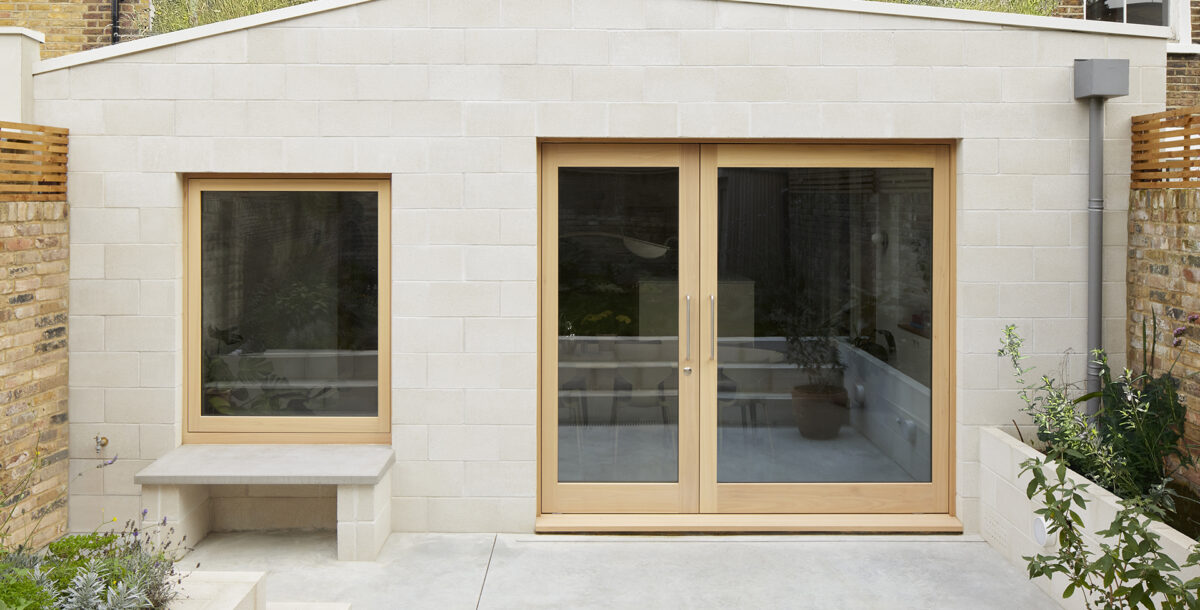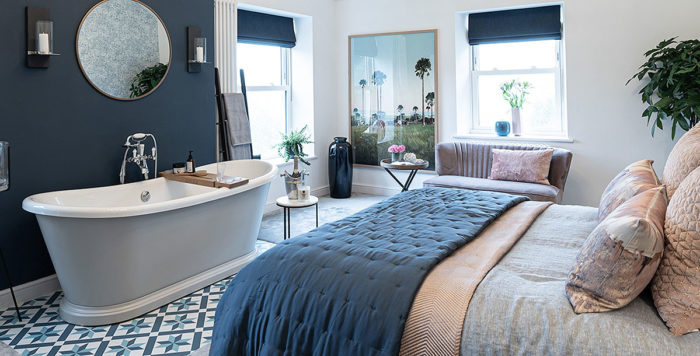Heat pumps do work! Here’s why you should consider installing one
Here’s why a heat pump should now be a top choice for anyone looking to replace their heating.
Heat-pump technology has been around since the 1850s, but, as a domestic heating solution, it first entered the UK market about 15 years ago – and the first generation of heat pumps was subject to teething troubles a plenty.
This was partly because the kit itself was very new; and partly because engineers, more used to installing gas boilers, were trying to get their heads round a whole new technology.
All this meant some early adopters got burned – though not by their decidedly lukewarm radiators – and heat pumps acquired a bad reputation.
Low installation numbers
This partly explains why heat pumps have been slow to take off in the UK, despite various government incentive schemes. A lack of qualified installers hasn’t helped.
The government wants 600,000 new heat-pumps installed each year by 2028 to meet Net Zero targets, but in 2022 less than 10% of that was achieved.
Last year, figures increased, and they look set to rise again this year, for times have changed. The machines have advanced rapidly, and, led by fanatics like the Heat Geeks, engineers have upskilled and established good practices within the industry, meaning these pumps are now a viable heating choice for almost all UK homes.
What is a heat pump?
Most heat pumps in this country are air-source pumps, which can collect energy from the air outside, even in cold weather.
This is used to heat water that runs through radiators and underfloor heating to heat the home – just like in traditional gas and oil set-ups. We’ve got more details here about exactly how heat pumps work. (But it’s quite complicated, and there’s no need to understand it unless you really want to.)
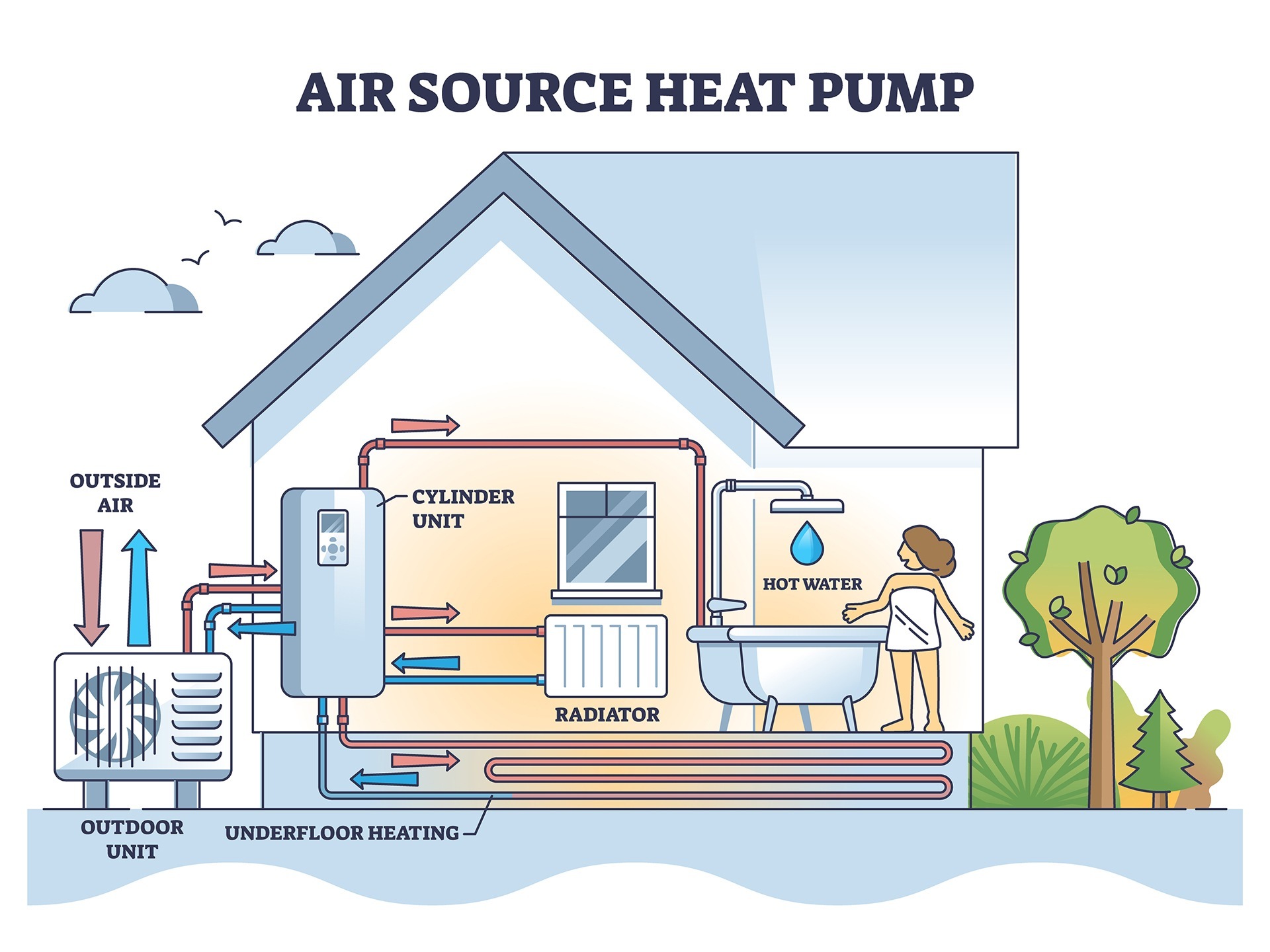
Image credit: Adobe Stock
If you buy a heat pump, you will get an outdoor collector unit containing a fan, which will be connected via pipes through the wall to an indoor heat-exchanger unit that transfers heat from outside into the water circulating in your heating system.
Plus, they can heat your hot water too – but you will need to get a compatible hot-water cylinder.
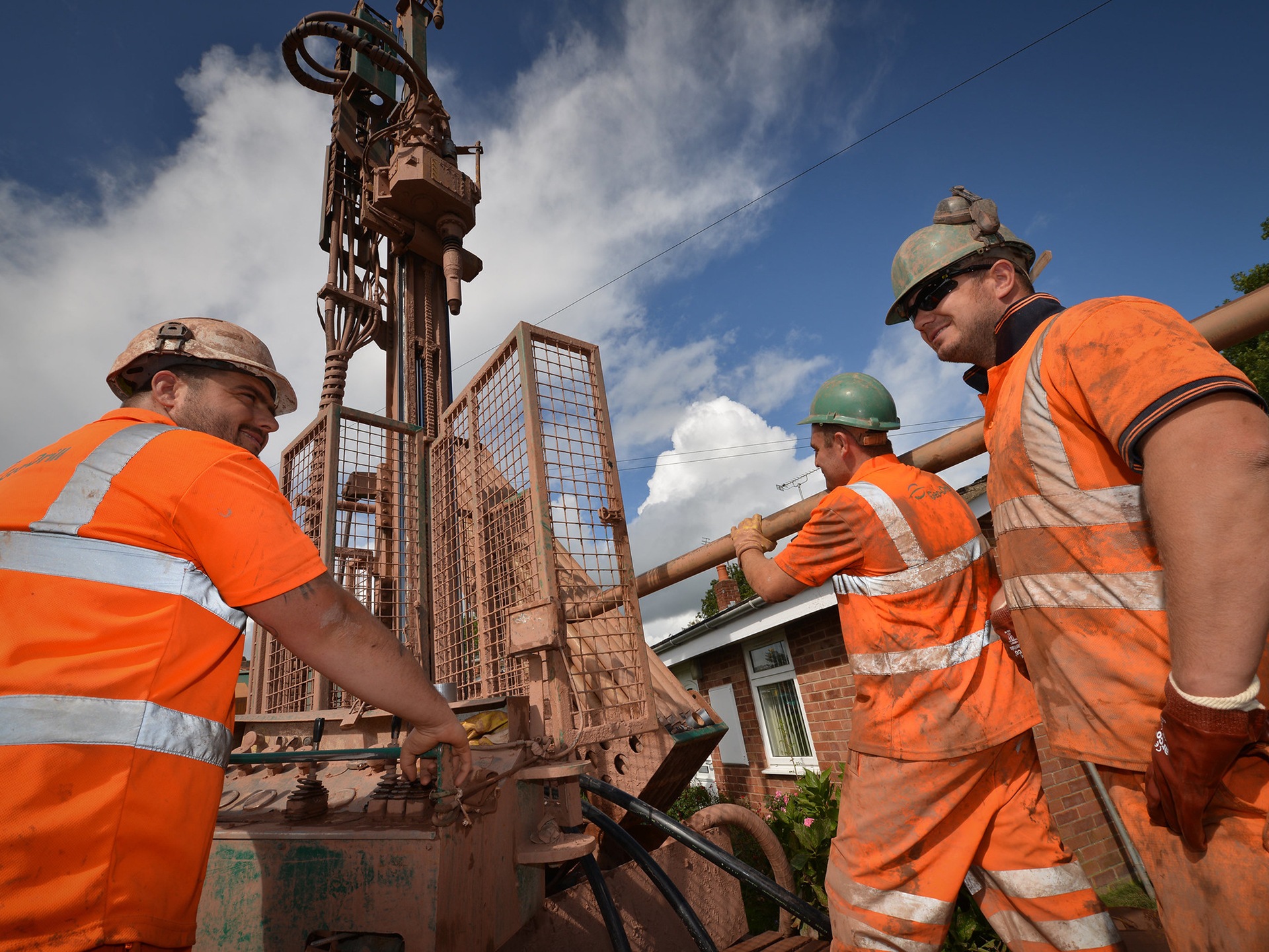
Image credit: Kensa
The second most popular type of heat pump is a ground-source heat pump. These take energy from the earth rather than the air.
Typically, they cost more to install because groundworks are required to bury the heat collector in the ground. Plus, they are only suited to properties with relatively large gardens or grounds.
Exhaust-air heat pumps are an option for small properties in densely populated locations, such as flats, and small new builds. Special high-temperature options may be useful for older properties with poor insulation.
But the temperatures generated by ordinary heat pumps are increasing all the time. Latest features, meanwhile, include smart control via app, which even lets engineers adjust the system remotely.
What’s different now?
Some first-generation pumps struggled to get water very hot. Among other things, that meant homeowners had to replace their radiators with larger ones, at additional cost, to provide enough heat.
However, the latest generation of pumps features newer refrigerants (yes, heat pumps use refrigerant to heat water: I told you it was complicated), such as one called R290 – propane to you and me.
These are better at extracting heat from the air – as well as better for the environment – than earlier coolants, which means the pumps work better, and can achieve higher temperatures.
Engineers have also learned how to get the best out of them, using features like weather compensation – which adjusts the system according to the temperature outdoors – and how to set up systems so they work really well.

Image credit: NIBE
A low-carbon choice
Of course, a key reason to choose a heat pump is because of the technology’s clean, green credentials.
A heat pump is a low-carbon heating choice: it uses no fossil fuel directly, runs off a small amount of electricity, and works four or five times as efficiently as a gas boiler. (Exactly how ‘clean’ it is depends ultimately on the proportion of renewable energy in the electricity used to run it.)
How to pick a heat pump installer?
The best advice when it comes to choosing a heat pump is to find an excellent installer and take their advice. (Someone like Heat Pump Installer of the Year, Stuart Sugden.)
Olivia Downing, from NIBE, advises, “Find an installer with a broad portfolio of projects under their belt as they are more likely to have the experience of different types of properties and access to a wider range of solutions.” Obviously, the standard advice to get three quotes applies too.
The right installer will guide you through the whole process. Thomas Farquhar, of Heatio smart home-heating app, says, “The first thing to look for is that they hold MCS (Microgeneration Certification Scheme) Certification, as this means they have been assessed, are qualified and suitable to fit one, and, importantly, can offer you the £7,500 grant available for switching over from a boiler.
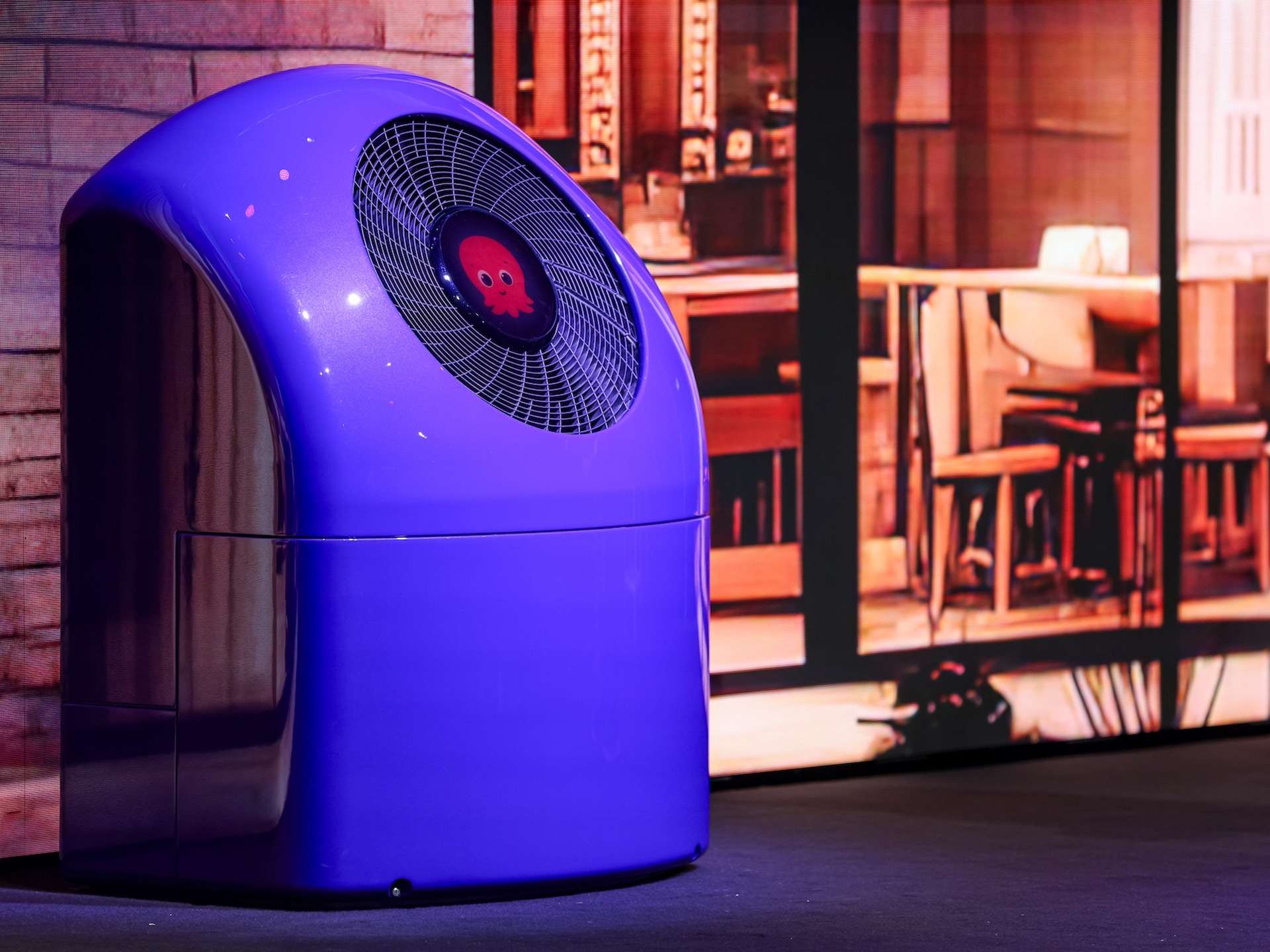
Image credit: Octopus Energy
“Getting a qualified, experienced installer to do a heat-loss calculation for your home is a crucial first step. This involves measuring rooms and windows and assessing insulation levels to identify the size and type of heat pump you need. You’ll get a clear idea of installation and running costs, so you can forecast when you’ll get a return on your investment.
“Your installer should advise on any changes needed to make your property heat-pump ready. That might include wall or loft insulation, double or triple glazing, radiator and piping upgrades or underfloor heating. Whatever alterations are required, they’ll enhance the overall energy efficiency and comfort of your home.”
Although extra insulation usually makes sense, you don’t technically need to install it before getting your heat pump. Poor insulation might just mean your pump is more expensive to run.
Thomas says, “A research study called the Electrification of Heat proved any property can use a heat pump, the pump just has to be sized appropriately, as any heating system does. Different types and sizes of property and levels of insulation will dictate what size you need.”
Increasingly, heat pumps are seen as a property selling point. Hamid Salimi, of Daikin UK, says, “Installing environmentally friendly heating and energy solutions in your property makes it more attractive to buyers and can increase its value.
According to Rightmove, a property moving from an Energy Performance Certificate (EPC) rating of F to a C could increase its value by an average of 15%.”
Using your new heat pump system
Your installer will tell you how to use your new system, but it’s important to remember a key difference from gas boilers. Hamid explains, “They’re designed to maintain a steady temperature, unlike gas boilers, which provide short bursts of heat.”
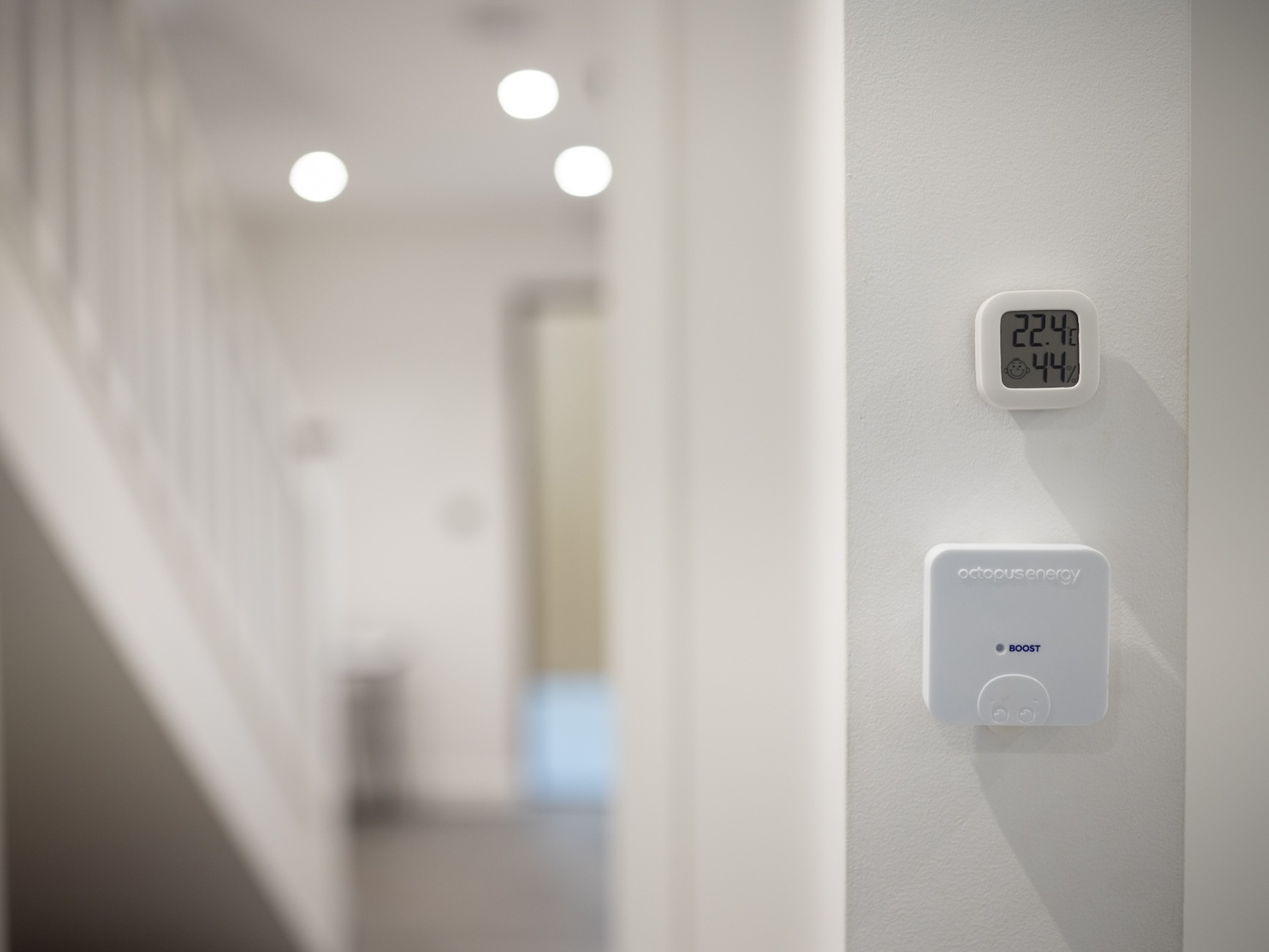
Image credit: Octopus Energy
What are the drawbacks?
So what’s the catch? Unfortunately, heat pumps remain an expensive choice. Some installers promise an upfront cost of as little as £500, but the typical cost of installation is between £6,000 and £11,000 on top of the £7,500 grant.
If you live in England or Wales, you should be able to get the grant from the Boiler Upgrade Scheme. There is a similar grant and loan scheme in Scotland.
Heat pumps: running costs
When it comes to ongoing costs, heat pumps can result in energy-bill savings despite the high price of electricity. Thomas says. “It depends on what system you are replacing and whether you are combining it with other technologies like solar.
The Energy Saving Trust has a cost-comparison guide that is worth looking at. We have seen customers with combined systems that include heat pump, solar and battery saving over 50%.” Bear in mind though, a set-up like this will involve an even bigger upfront investment.
The price of electricity is high compared to gas. But because they’re so much more efficient than gas boilers, your running costs could still be lower.
It all depends on the size of your house, its insulation, the model of pump and your electricity tariff. According to the Energy Saving Trust, the average running cost of a heat pump is about £1,500 a year. Ask your installer about the running costs others in similar properties to yours have had.
More heat-pump facts
If you’ve still got questions, this Facebook group for owners and installers is a great place for real-life experience, help and advice.

